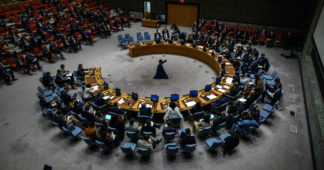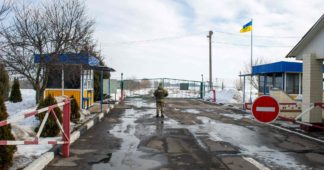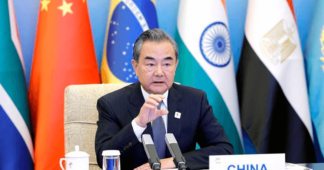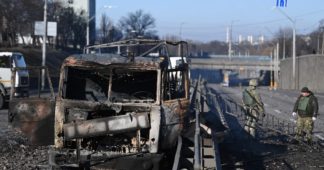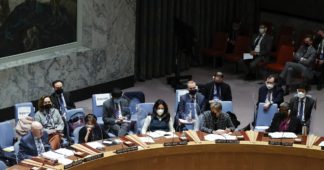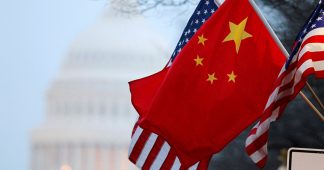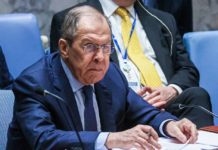BWang Qi
Feb 24, 2023
On the one-year anniversary of the Russia-Ukraine military conflict, China restated its calls for political settlement of the Ukraine crisis with more specific plans that accommodate the concerns of both Russia and Ukraine, in a neutral and consistent manner.
In a 12-point position paper dubbed “China’s Position on the Political Settlement of the Ukraine Crisis,” issued on Friday morning, the Chinese Foreign Ministry called for ceasing hostilities and resuming peace talks, stopping unilateral sanctions and abandoning the Cold War mentality.
It also called for respecting the sovereignty of all countries and expressed opposition to the use of nuclear weapons.
Chinese experts said the document should be viewed as a blueprint that has made China’s principles clear for resolving the crisis and pointed out the basic path to achieve it constructively.
Although the document reflects China’s position as a peacemaker and negotiation facilitator, as well as China’s great sincerity in global governance, experts suggested that the course of the conflict largely depends on the willingness of both sides to resolve the conflict peacefully. And the atmosphere and willingness to negotiate are seemingly still far from being mature given the US and NATO’s interference.
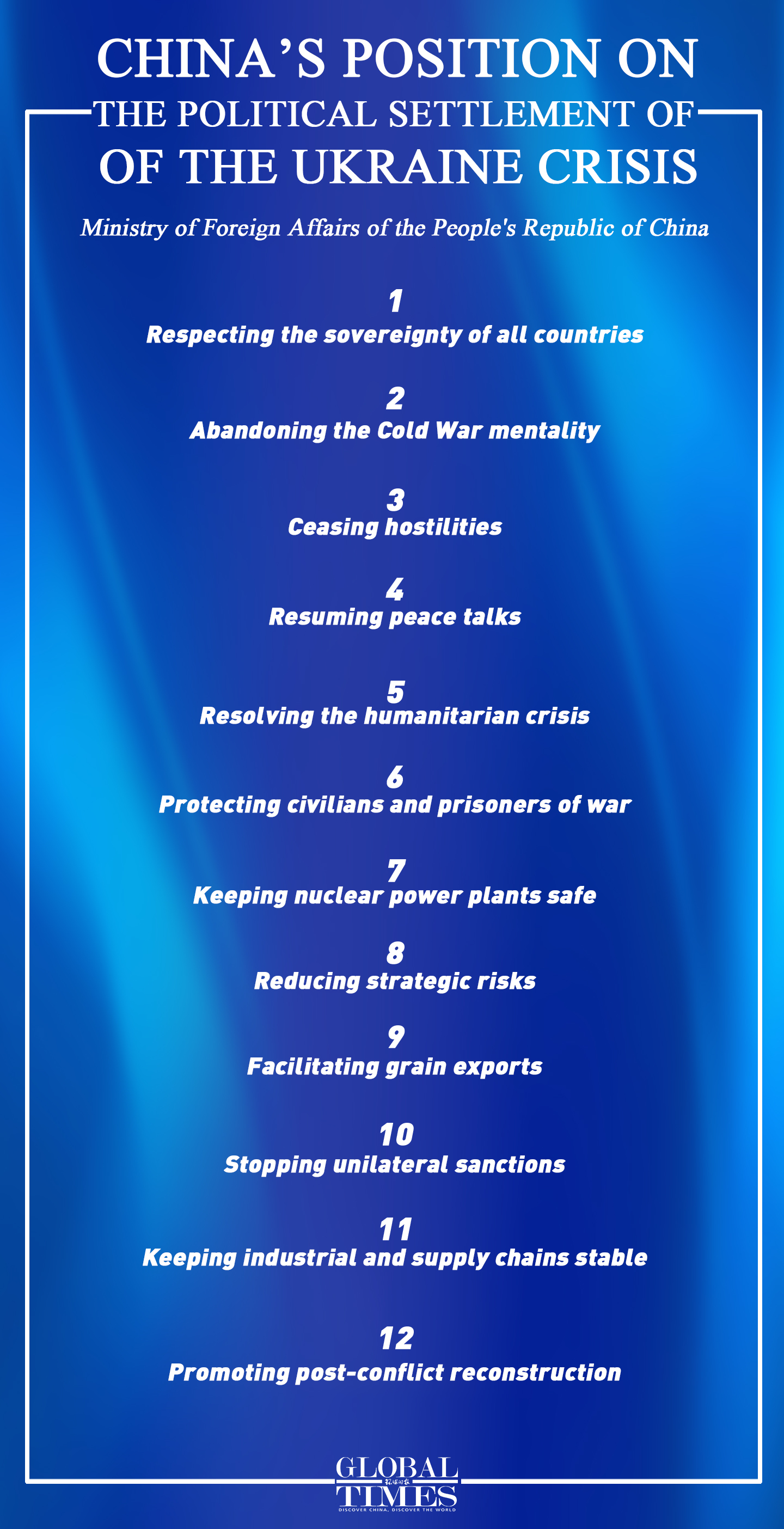
China’s Position on the Political Settlement of the Ukraine Crisis. Graphic: GT
A blueprint in good faith
During the 59th Munich Security Conference in Germany last week, China’s senior diplomat Wang Yi stressed that human society must not repeat the old path of antagonism, division and confrontation, and must not fall into the trap of zero-sum game, war and conflict. Wang Yi said China will continue to stay firm on the side of peace and dialogue regarding the Ukraine crisis.
The newly released document goes further than that, a roadmap from ceasing fire to coping with the spillover crisis and promoting post-war construction, analysts said.
Zhang Hong, associate research fellow at the Institute of Russian, Eastern European and Central Asian Studies of the Chinese Academy of Social Sciences, told the Global Times that the most significant highlight in the 12-point position paper is that China issued specific measures, steps and suggestions, other than just expressing its stance of promoting peace.
“The Chinese document shows goodwill and sincerity, as well as its willingness to contribute to global governance,” Zhang said.
The paper stressed that the international community should stay committed to the right approach of promoting talks for peace, help parties to the conflict open the door to a political settlement as soon as possible, and create conditions and platforms for the resumption of negotiation.
In terms of specific suggestions, the paper suggested that “humanitarian corridors should be set up for the evacuation of civilians from conflict zones.” It also called on parties involved to avoid attacking civilians or civilian facilities, protect women, children and other victims of the conflict, and respect the basic rights of prisoners of war.
Against the backdrop of Russia suspending its participation in the last remaining nuclear arms control pact with the US, the paper called for keeping nuclear power plants safe and expressed opposition to the use of nuclear weapons and armed attacks against nuclear power plants or other peaceful nuclear facilities.
The paper also stressed the need to keep industrial and supply chains stable, mitigating the spillovers of the Ukraine crisis and preventing it from disrupting international cooperation in energy, finance, food trade and transportation and undermining the global economic recovery.
Li Haidong, a professor at the China Foreign Affairs University in Beijing, told the Global Times that the document has made China’s principles for resolving the crisis clear, offered the basic path to achieve it, as well as addressed major issues that should be of common concern to the international community.
“It is a blueprint for a constructive solution to the crisis,” Li said.
It would help the international community better understand China’s active role as a peacemaker and facilitator of negotiations, especially when some Western media and politicians are distorting and discrediting China’s role in the Ukraine crisis, Li noted.
The position paper also stressed promoting post-conflict reconstruction and China’s constructive role in it.
In response to questions on the position paper, Chinese Foreign Ministry spokesperson Wang Wenbin said at Friday’s press briefing that China has always maintained that all efforts conducive to the peaceful settlement of the crisis should be supported.
On the basis of the position paper, China will continue to work with the international community to play a constructive role in the political settlement of the Ukraine crisis, the spokesperson said.
The Ukraine issue has evolved in a complex historical context. China has always upheld an objective and fair position to promote peace talks. We have always stood firmly on the side of peace, dialogue and the right side of history, he said.
‘Conflict benefits no one'”
The newly released document came amid a time when the US and some Western countries hype Russia’s “spring offensive” and groundlessly accuse China of “considering supplying arms to Russia.”
In the document, China called for stopping unilateral sanctions, abandoning the Cold War mentality and bloc confrontation, as the security of a region should not be achieved by strengthening military blocs, and parties should oppose the pursuit of one’s own security at the cost of others’ security.
Besides, the paper also stressed that “sovereignty, independence and territorial integrity of all countries must be effectively upheld.”
“Conflict and war benefit no one,” it said.
However, reality does not make experts optimistic about the prospects for the talks to happen soon as the US and NATO have been clamoring for Kiev to knock Moscow down on the battlefield.
China’s position paper takes into account the concerns of both Russia and Ukraine and is impartial. But the direction of the military conflict largely depends on whether the two sides are willing to rely on outside mediators to resolve the conflict, Zhang said.
To some extent, America’s attitude also determines the course of the war. At about the same time that senior Chinese diplomat Wang Yi met with Russian President Vladimir Putin and other senior Russian officials in Moscow promoting political settlement, US President Joe Biden made a surprise trip to Kiev, which analysts believe will trigger a more aggressive counterstrike from Russia.
Analysts said with a strong smell of gunpowder, the current atmosphere and willingness to negotiate are immature. Although the US is the biggest beneficiary of the Ukraine crisis, it can also be the victim if the military conflict drags on.
Using Ukraine to try to subvert the Russian regime and defeat a nuclear military power is likely to end in a lose-lose scenario, Li Haidong said.
“In the future, war of any kind cannot be ruled out, which means that the US is likely to be hit by its own boomerang,” Li added.
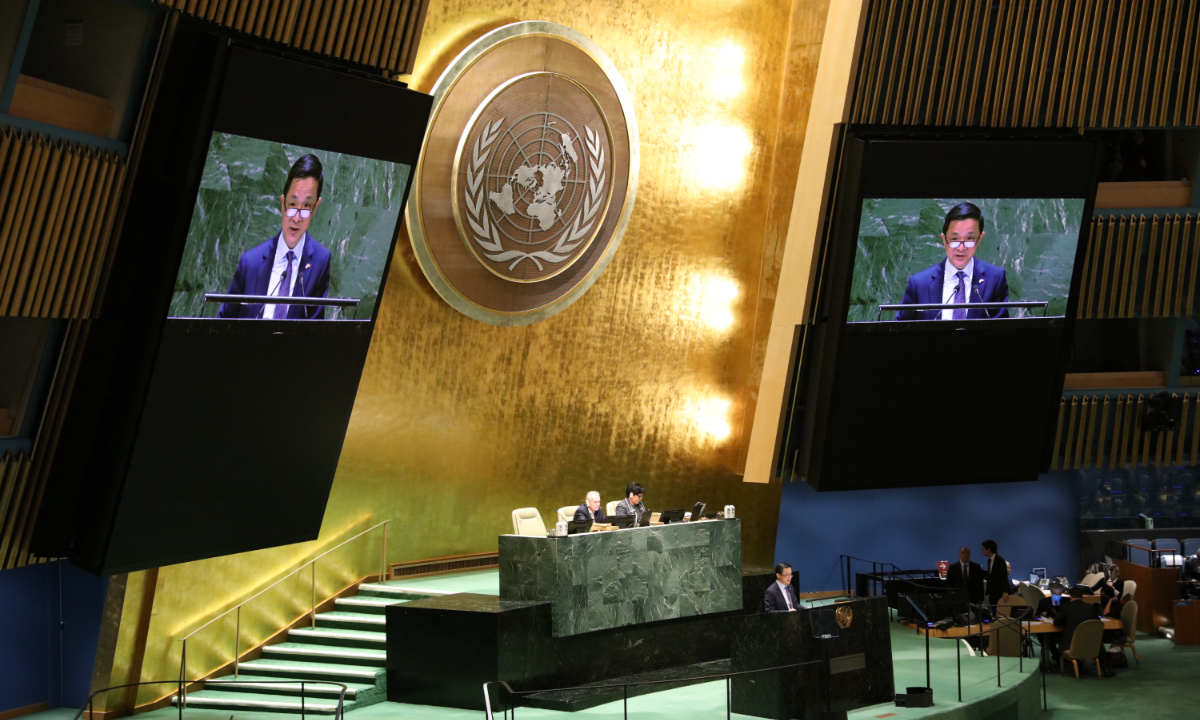
Dai Bing, charge d’affaires of China’s permanent mission to the United Nations (UN), speaks during an emergency special session of the General Assembly on Ukraine, at the UN Headquarters in New York on February 23, 2023. One year into the Ukraine crisis, brutal facts have provided ample proof that sending weapons will not bring peace, Dai said. Photo: Xinhua
Dai Bing, charge d’affaires of China’s permanent mission to the UN on Thursday told the UN General Assembly Emergency Special Session on Ukraine that “One year into the Ukraine crisis, brutal facts have offered ample proofs that sending weapons will not bring peace, adding fuel to the fire will only exacerbate tensions, and prolonging and expanding the conflict will only make ordinary people pay an even heftier price.”
“We urge the countries concerned to stop abusing unilateral sanctions and long-arm jurisdiction. Instead, they should act in a way conducive to de-escalation,” Dai said.
“The lessons of history tell us that crises, however deep, can ultimately be resolved peacefully. No matter how difficult it is, the door to a political solution cannot be closed,” said Dai.
We remind our readers that publication of articles on our site does not mean that we agree with what is written. Our policy is to publish anything which we consider of interest, so as to assist our readers in forming their opinions. Sometimes we even publish articles with which we totally disagree, since we believe it is important for our readers to be informed on as wide a spectrum of views as possible.
